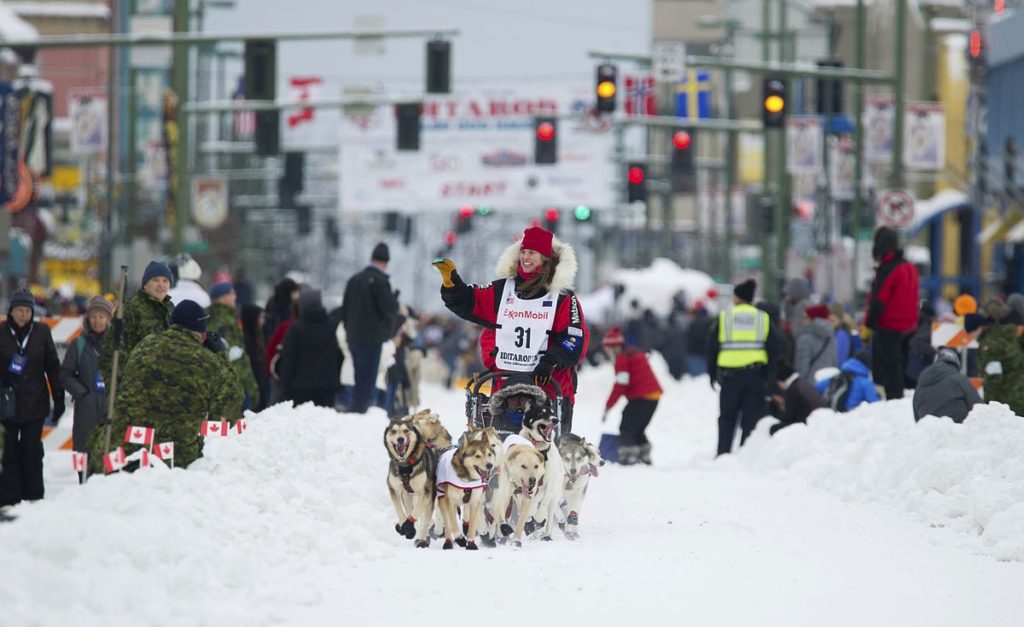By the time you read this, I will likely be on a dog sled racing across Alaska in my 21st Iditarod. This is also my last Iditarod. I will retire from competitive sled dog racing to spend more time with my husband, Allen.
In 20 years, I started 20 Iditarods — and I finished them all. People often ask me how I did it, and I tell them the key to finishing the Iditarod is fairly simple: Just keep moving forward. So as I head into the sunset, I want to take this opportunity to say thanks and maybe even pass on some advice.
First, as to my reasons for leaving this sport I love, retirement has not been a quick decision. While the Last Great Race has been a spectacular adventure for me, living and training for decades at an ultra-competitive level has been physically and mentally demanding. At times, I have been challenged to my very core. I know that in the not-so-distant future, I won’t be able to give it my 100%. So, I am retiring before I have to retire.
I began dog mushing because of my love for dogs and my desire to spend endless days with them. I have done just that. Together, my dogs and I have raced more than 30,000 miles. We have explored the winter wilderness of Alaska together. Throughout my competitive life, I never gave up my values of deep love and respect for my dogs. These will be with me until my dying day. Dogs have been, and will always be, my life.
I want to thank everyone who has supported me over the years, from the folks who staff the Iditarod organization and stopping points, residents of remote communities who wake up in the middle of the night to provide racers with hot soup, veterinarians who spend weeks at distant checkpoints to care for dogs, pilots who drop off thousands of pounds of dog food, and the people who come out to cheer us on or put hand-drawn signs along the trail that say things like, “Way to go, Aliy!”
The Last Great Race has brought me face-to-face with amazing and unique people across the state and from around the world. They have given me immense energy, passion and spirit that has driven me to always, always do my best.
You learn a lot about yourself racing a dog sled for a thousand miles. You’re forced to answer one question again and again, “Do I have what it takes to do this?” Because, to be perfectly honest, it’s hard. The Iditarod is a brutally difficult test of willpower and physical endurance. You sleep very little, it’s incredibly exhausting, incredibly cold, and one mistake on the wrong patch of ice or rocks could be bad news.
Even when I faced my greatest challenge on the trail and probably should have quit the race, I just kept moving forward. I don’t know how or why I was able to pick myself up, calm my dogs and finish the race that year or any of the other 20 years I encountered crushing challenges. I just didn’t quit. And I think that’s the answer.
We each have battles we’re fighting. We all face difficult challenges. And it’s at the point where it all seems too much, when the fight seems impossible to win, that we inevitably ask, “Do I have what it takes to do this?”
The answer is yes. Yes, you do. No matter how dark and cold your trail may seem. The only way to finish the race you’re in is to simply not quit. So after finishing 30,000 miles of sled dog races, that’s my parting advice:
Aliy Zirkle is running her 21st – and last – Iditarod. She and her husband, Allen Moore, operate SP Kennel in Two Rivers, northeast of Fairbanks. Both are retiring from competitive racing.

